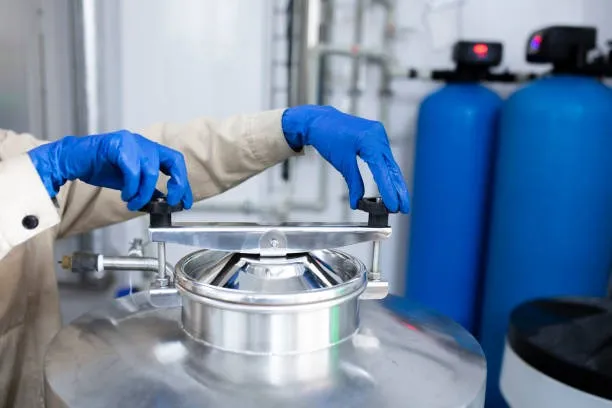
Boiler Replacement in East Petersburg, PA
Replacing your boiler is one of the most important decisions you can make for winter comfort, energy bills, and long-term reliability in East Petersburg homes. With Lancaster County winters that bring cold, damp conditions and many older homes built with hydronic heating, choosing the right replacement — sized and installed correctly — prevents cold spots, reduces fuel use, and avoids repeated repair costs.
When replacement is recommended instead of repair
Consider replacement when you see one or more of these signs:
- The boiler is 15 years or older and requires frequent repairs.
- Repair costs over a short period approach or exceed half the cost of a new unit.
- Your home has persistent cold rooms, uneven heat, or rising fuel bills despite repairs.
- The unit cannot meet current efficiency or indoor air quality expectations (low AFUE rating).
- The boiler uses an obsolete fuel type or unsafe components, or the heat exchanger is cracked.
Replacing a failing boiler can restore consistent comfort, reduce monthly energy costs, and improve home value — especially in East Petersburg where older piping and radiator systems are common.
Types of replacements and models to consider
Pick a boiler that fits your home’s distribution system and fuel type. Common options:
- Condensing gas boilers (high-efficiency) — Up to 95% AFUE, ideal for homes on natural gas or propane. Great for most East Petersburg homes that want lower fuel bills.
- Non-condensing boilers — Simpler and sometimes used where venting or compatibility require them, but less efficient.
- Combi boilers — Provide space heating and on-demand domestic hot water in one compact unit; good for smaller homes or where tankless hot water is desired.
- Cast iron vs. steel/stainless — Cast iron holds heat well and works with older radiators; modern steel or stainless designs are more compact and often better for condensing systems.
How technicians evaluate your system (load and sizing calculations)
Proper sizing is critical. A professional evaluation typically includes:
- A room-by-room heat loss calculation (Manual J style) to determine the actual heat load.
- Review of existing distribution: radiators, baseboards, or radiant floors; pipe sizes and boiler water temperatures.
- Inspection of fuel supply, venting, combustion air, and clearances.
- Assessment of domestic hot water needs if a combi or indirect tank is considered.
Accurate sizing prevents short cycling (too large a boiler) or underperformance (too small), ensuring efficiency and comfort.
Installation process, timeline, and on-site steps
A typical boiler replacement follows these stages:
- Pre-installation site survey and permit review.
- Ordering the correctly sized equipment and any ancillary items (pumps, expansion tanks, valves). Lead time varies by model.
- Removal and safe disposal of the old unit and any obsolete components.
- Installation day: set new boiler, connect fuel, water, venting, and controls; pipework modification as needed.
- Startup, combustion testing, system balancing, and homeowner orientation on operation and controls.
- Final inspection and code compliance sign-off.
Most residential replacements are completed in 1–3 days once equipment arrives. Complex retrofits or older piping may extend the timeline.
Removal, disposal, permitting, and code compliance
Replacing a boiler requires safe removal and legal compliance:
- Old equipment is drained and disconnected; hazardous materials (if present) are handled per regulations.
- Local permitting and inspections (Borough/County) ensure fuel gas, venting, and electrical work meet code.
- Technicians will register the installation, provide required documentation, and ensure safe flue termination and combustion air requirements are met.
Energy-efficiency, rebates, and financing assistance
Upgrading to a high-efficiency condensing boiler can substantially reduce fuel use over time. Typical efficiency measures and benefits:
- Higher AFUE ratings translate to lower fuel bills and reduced carbon emissions.
- Modulating burners and variable-speed pumps improve comfort and efficiency by matching output to demand.
- Smart controls and outdoor reset strategies further optimize performance.
Many homeowners qualify for utility rebates, manufacturer incentives, or tax credits for high-efficiency equipment. Financing options are commonly available to spread the investment over time. Ask your installer to review potential rebate programs and documentation needed for applications.
Warranty coverage and long-term benefits
New boilers generally come with manufacturer warranties for heat exchangers and parts; installers often provide labor warranties. When selecting equipment, compare:
- Manufacturer heat exchanger warranty length.
- Parts warranty and what is covered (controls, pumps, burners).
- Installer labor warranty and post-installation support.
Long-term benefits of a properly selected and installed boiler include lower annual heating costs, fewer emergency repairs, more consistent warmth, quieter operation, and increased resale value for your East Petersburg property.
How to choose the right replacement for your home
When comparing options, consider:
- Fuel availability and cost in East Petersburg (natural gas, propane, heating oil, or electric options).
- Compatibility with existing radiators or distribution piping — some older radiators run at higher water temps.
- Efficiency (AFUE), modulation capability, and controls that match your comfort needs.
- Space constraints and venting requirements in basements or utility closets.
- Warranty terms and the reputation of both manufacturer and installer.
Ask for a written system specification that shows calculated heat load, recommended boiler model, expected seasonal efficiency, estimated fuel savings, and a clear timeline for installation.
Post-installation care and maintenance
Protect your investment with routine care:
- Annual tune-ups to check combustion, pressure, pumps, and safety controls.
- Periodic system flushing or water treatment where mineral buildup is likely.
- Monitor boiler pressure and bleed radiators when needed.
- Keep venting areas and combustion air pathways clear.
Proper maintenance preserves efficiency, extends service life, and keeps heat reliable throughout East Petersburg’s cold months.
Replacing your boiler is a technical but high-impact upgrade. With the right evaluation, correct sizing, and attention to local conditions in East Petersburg, a new boiler delivers predictable comfort, lower operating costs, and years of reliable service.


Enjoy flexible financing options that make upgrading or repairing your HVAC system easy and budget-friendly.










